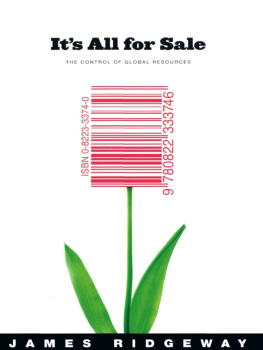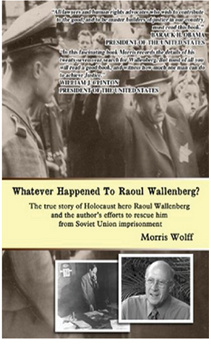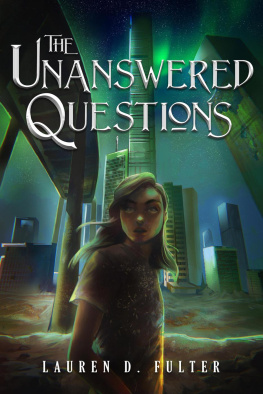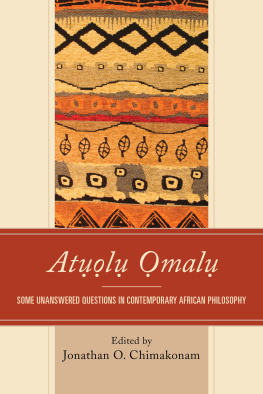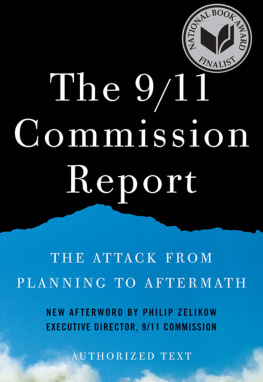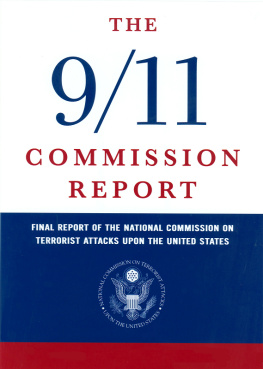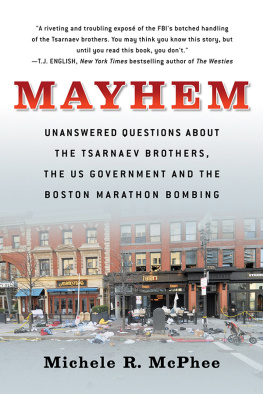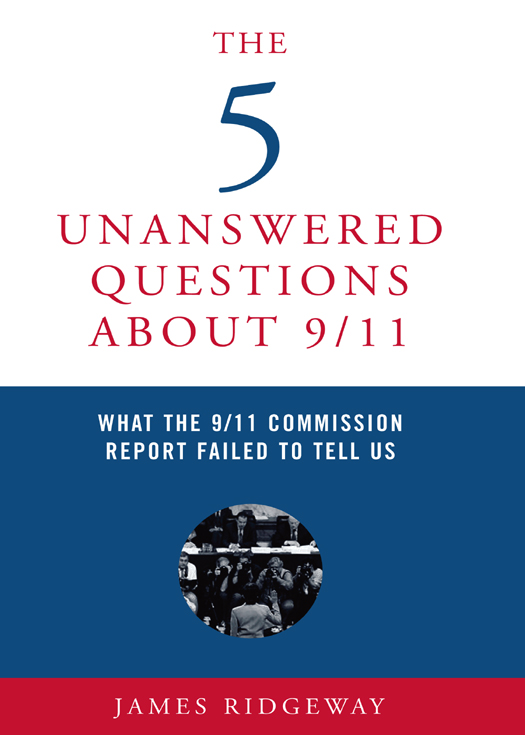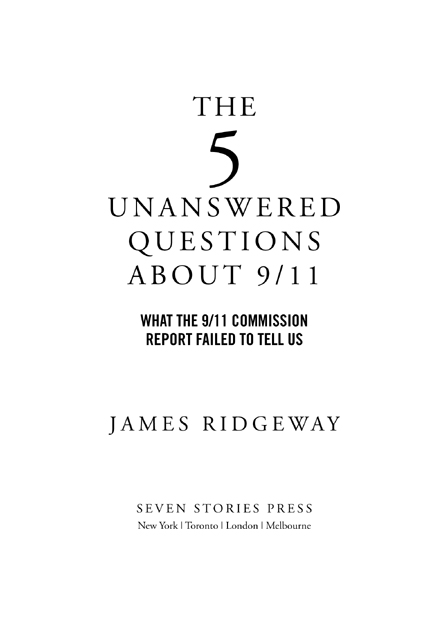Copyright 2005 by James Ridgeway
A Seven Stories Press First Edition, November 2005.
All rights reserved. No part of this book may be reproduced, stored in a retrieval system, or transmitted in any form or by any means, including mechanical, electric, photocopying, recording, or otherwise, without the prior written permission of the publisher.
Seven Stories Press
140 Watts Street
New York, NY 10013
www.sevenstories.com
In Canada: Publishers Group Canada, 250A Carlton Street, Toronto, ON M5A 2L1
In the U.K.: Turnaround Publisher Services Ltd., Unit 3, Olympia Trading Estate,
Coburg Road, Wood Green, London N22 6TZ
In Australia: Palgrave Macmillan, 627 Chapel Street, South Yarra, VIC 3141
College professors may order examination copies of Seven Stories Press titles for a free six-month trial period. To order, visit www.sevenstories.com/textbook/ or send a fax on school letterhead to 212-226-1411.
Library of Congress Cataloging-in-Publication Data
Ridgeway, James, 1936
The 5 unanswered questions about 9/11 / James Ridgeway.1st Seven Stories
Press ed.
p. cm.
eISBN: 978-1-60980-123-6
1. September 11 Terrorist Attacks, 2001. I. Title: Five unanswered questions
about 9/11. II. Title.
HV6432.7.R54 2005
973.931dc22
2005024128
v3.1
Contents
Acknowledgments
I want to thank David Botti, whose meticulous research made a vital contribution to this book. Natalie Wittlin, George Maurer, and Halley Bondy also provided valuable assistance in research. Special thanks go to Jean Casella, without whose skillful editing this book could never have been completed. I am also grateful to the dedicated staff of Seven Stories Press, and especially its publisher, Dan Simon, for his wise advice and steadfast encouragement.
This book owes a great debt to the whistle-blowers who have braved hostile government reaction and come forward to make public what they know, and who were generous enough to share this knowledge with me. I especially am grateful to Sibel Edmonds, the former FBI translator who not only became a whistle-blower herself, but encouraged others to do likewise. Both Steve Elson and Bogdan Drakovic, former members of the FAA Red Team, have been tireless in their attempts to draw public attention to the failures of that agency, and the resultant risks to public safety. Brian Sullivan in Boston has been a great help. Kyle Hence has provided advice, information, and encouragement from the beginning. Mark Zaid, an attorney versed in national security law, and Allan Duncan, a one man network on the events of 9/11, were also generous with this help. Four years after the attacks, these whistle-blowers, along with the families of the 9/11 victims, have remained unwavering in their demand for responses to all of the unanswered questions about 9/11.
I am also indebted to the many authors whose groundbreaking work helped to inform this book, especially Andrew Thomass Aviation Insecurity, on the air transport industry and its political machinations; Steve Colls Ghost Wars, on the history of the Pakistani secret service in Afghanistan; Senator Bob Grahams Intelligence Matters, on failures in the Intelligence Community; and Paul Thompsons Terror Timeline, still the most comprehensive summary of events related to the 9/11 attacks.
Preface
How could this have happened?
Of the unanswered questions about 9/11, this is the question that encompasses all others. It is the question most of us asked ourselves while we watched, in shock and near disbelief, as the Twin Towers burned and collapsed on September 11, 2001. It is the question most of us, in one way or another, are still asking.
The 9/11 attacks were events of enormous proportionsenormous in terms of the failure of U.S. institutions as well as the loss of human life. They were events that, for most Americans, produced anger and insecurity as well as sorrow.
One tendency, when faced with such events, is to withdraw into unquestioning patriotism, focusing only on the outside enemy, rather than on homegrown problems. The terrorists are a bunch of evildoers; they hate us for our wonderful way of life and were out to get us; there is nothing we could have done about it.
Another tendency is to grasp at conspiracy theories, envisioning secret, sinister plots reaching to the highest levels of government. Chief among these is the theory that the Bush administration planned or supported the attacksor, in the less extreme version, that it knew exactly what was going to happen and let the attacks occur because they suited the Bush political agenda. To be fair, there is ample fuel for these theories in the endless cover-ups that have characterized the White Houses response to 9/11. But the problem with most of these conspiracy theories (in addition to a lack of convincing evidence to support them) is that they, too, blame what happened on a handful of evildoers; and because they attribute everything to hidden hands, they, too, suggest that there is nothing we could have done about it.
All this misses the point in that it views the fact that 9/11 could happen as something that has to be explained by an aberrationa secret plot, operating outside normal channels. But the circumstances that allowed the attacks to take place, unimpeded, are anything but an aberration. Follow any trail from the events of 9/11 and you come to a point that intersects with the basic structures of the American political and economic system. If this were a conspiracy, then it would have a very large pool of conspiratorsall of our captains of business and industry, our scions of political and institutional leadershipand would have been going on for a very long time.
In truth, the hidden hands are hiding in plain sight, and the secret plot is an open secret: Our nation operates on a system designed to serve the interests of those who control money and power, rather than the public interest. We live in a country where other things are simply more important than protecting the lives of ordinary Americans. The fact is that 9/11 happened because other things were more important than making sure it didnt happen.
For example, time and time again, we have seen government regulators place corporate profits before public safety. Should it be any surprise, then, that the FAA allowed airline profits to take precedence over public safety? For decades, the United States has supported unsavory regimes because they served larger foreign policy objectives or possessed vital resources. Does it not follow that we would turn a blind eye to Pakistans support of the Taliban, or Saudi Arabias funding of Al Qaeda? The 9/11 Commission was part of the system, its members drawn from its high echelons. Could we really expect them to produce findings that might shake the systems foundations?
In saying that the system permitted 9/11 to take place, I do not intend to suggest that what happened was inevitable. Nor do I think that particular individuals, institutions, or policies should be held any less responsible for what happened. As this book shows, there were dozensperhaps hundredsof instances in which a different action, a different choice, or a different priority might well have prevented the attacks. Especially on the part of so-called public servants, the choice to serve the system rather than the public good is an indictment, not a justification.


